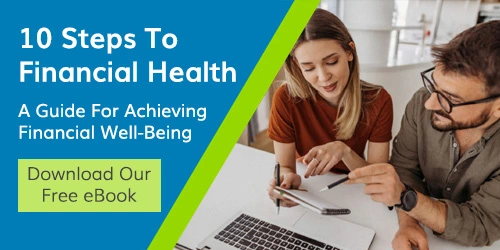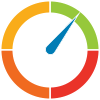Mastering Your Finances: 5 Effective Ways to Pay Off Credit Card Debt
Credit card debt can be a significant financial burden that can weigh heavily on your finances and overall well-being. It often starts innocently, with a few purchases here and there, but before you know it, the balances can quickly spiral out of control. High interest rates, coupled with minimum payments, can make it feel like you’re trapped in a never-ending cycle of debt. To help you get a handle on yours, we’ve put together five effective ways for you to pay off credit card debt.
The Impact of High Credit Card Balances
Carrying substantial credit card debt can have far-reaching consequences beyond just the financial aspect. It can affect your credit score, making it more difficult to secure loans or favorable interest rates in the future. Additionally, the stress and anxiety associated with debt can take a toll on your mental health and personal relationships.
Why Paying Off Your Credit Cards is Important
Eliminating credit card debt should be a top priority for anyone looking to regain control of their finances. Not only will it free up more of your income for savings and investments, but it will also provide a sense of relief and financial freedom. By taking proactive steps to pay off your credit card debt, you can improve your credit score, reduce stress, and put yourself on a path toward a more secure financial future.
5 Effective Ways to Pay Down Credit Card Debt
Although paying off credit card debt can seem daunting, there are several strategies you can employ to accelerate the process and regain control of your finances. Here are five effective ways to pay off credit card debt faster.
#1 Create a Budget and Track Expenses
The first step in tackling credit card debt is to create a realistic budget and track your expenses. By understanding where your money is going, you can identify areas where you can cut back and allocate more funds towards debt repayment. Consider using budgeting apps or spreadsheets to help you stay organized and accountable.
#2 Prioritize Debt Repayment and Minimize Expenses
Once you have a clear picture of your income and expenses, prioritize debt repayment as a non-negotiable expense. Look for opportunities to minimize discretionary spending, such as dining out or grabbing fast food frequently. You should also reduce entertainment costs and cut back on subscriptions you rarely use. Every dollar saved can be redirected towards paying off your credit card balances more quickly.
#3 Explore Balance Transfer Options
If you have multiple credit cards with varying interest rates, consider your balance transfer options. Many credit card companies offer low or 0% introductory APR periods for balance transfers, which can provide temporary relief from high interest charges. However, be sure to read the fine print and understand any associated fees or limitations.
#4 Negotiate With Credit Card Companies
Don’t be afraid to negotiate with your credit card companies. Many lenders are willing to work with customers who are proactively trying to pay off their debts. You may be able to negotiate a lower interest rate, waived fees, or even a temporary hardship plan that can make your payments more manageable.
#5 Seek Professional Debt Management Help
If your credit card debt has become overwhelming, seeking professional help from a credit counseling agency or exploring debt consolidation options may be beneficial. These services can help you develop a personalized debt repayment plan, negotiate with creditors on your behalf, and potentially lower your overall interest rates.
Tips For Staying Motivated
Paying off credit card debt can be a long and challenging journey, but staying motivated and committed is crucial. Here are some tips to help you stay on track:
- Celebrate small victories. As you make progress towards your debt repayment goals, celebrate the milestones along the way. This will help reinforce your commitment and keep you motivated.
- Find an accountability partner. Share your debt repayment journey with a trusted friend or family member who can hold you accountable and provide encouragement when you need it.
- Visualize your debt-free future. Remind yourself of the financial freedom and peace of mind that awaits once you’ve paid off your credit card debt. This can be a powerful motivator to keep pushing forward.
- Reward yourself (responsibly). When you reach significant milestones, treat yourself to a small, affordable reward that won’t derail your progress.
Paying off credit card debt can be a daunting task, but with the right strategies and mindset, it is achievable. By following our suggestions and tips, you can make significant progress towards becoming debt-free. Remember, the journey may be challenging, but the financial freedom and peace of mind that await on the other side make it well worth the effort.


